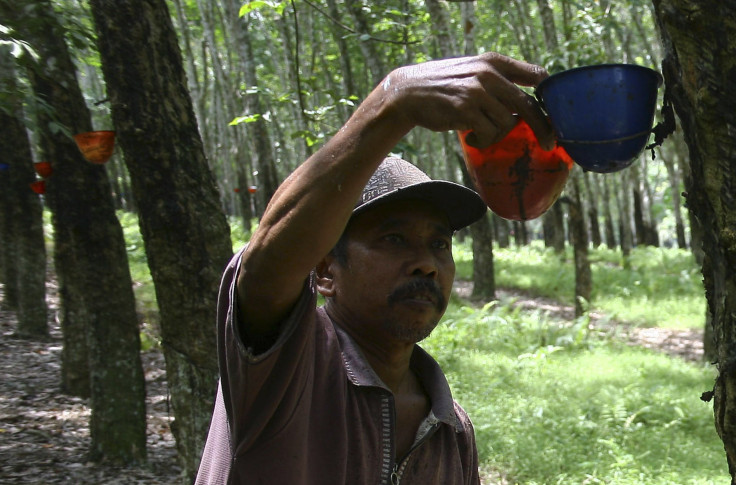Thailand Takes On Another Large Subsidy Program, Pledges Nearly $1 Billion To Assist Rubber Farmers As Price Of Rubber Falls

Thailand is offering a 30 billion baht ($959 million) subsidy to rubber farmers to help offset a plunge in the price of the commodity, the latest in a series of costly populist policies from the government, aiming to assist its rural communities.
After its expensive rice subsidy, which last year alone cost $4.4 billion and left a large stockpile of rice in storage, the Thai government has come up with another subsidy to help out its farmers. The policy comes after pressure from farmers across the country – marches are still planned for Monday in at least 14 provinces even though subsidies have been announced; farmers want to make sure that the subsidies are actually enacted, the Wall Street Journal said Friday.
The government is providing subsidies and other benefits to farmers as commodity prices continue to fall, while trying to keep government spending down. Efforts to cull its spending on the rice subsidy program were aborted due to widespread protests.
"Now that rice farmers and rubber farmers get subsidies from the government, farmers of other crops will want to have their share," said Aat Pisanwanich, director of the Center for International Trade Studies at Thai Chamber of Commerce University. "The government has to come up with longer-term measures because this subsidy isn't sustainable."
One third of the 30 billion baht budget is going to help rubber farmers cut production costs, said Yukol Limlamthong, the minister of agriculture. Limlamthong did not comment on the timing or the mechanics of the program, but referred the subsidy as a short-term solution to the difficulties facing local producers following a 20 percent drop in rubber prices since this year’s high in February, according to the Wall Street Journal.
Machinery for major rubber producers will receive another 15 billion baht from the program, and the remaining is earmarked to help farming cooperatives set up more processing plants.
Thailand is the world's biggest producer of rubber, which is used to make products from tires to gloves and condoms. Low rubber prices prompted the Thai government to join with Indonesia and Malaysia last year to cut exports by a collective 300,000 tons in order to boost prices. The strategy worked in the short-term, but prices are now falling after an earlier temporary price increase.
Just like with its rice scheme, Thailand’s joint policy with its Southeast Asian neighbors to manipulate rubber prices left the government sitting on 200,000 tons of rubber stockpile, after pledging 45 billion baht to buy up rubber from farmers at above-market prices, the Wall Street Journal reported.
© Copyright IBTimes 2025. All rights reserved.



















